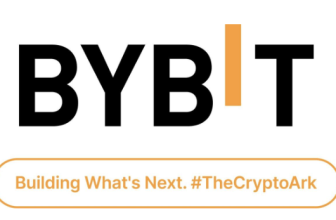
In recent period, Bitcoin and other cryptocurrencies have been and will be a major topic in the world. Headlines ranged from topics about the rise of cryptocurrencies at the end of the last year and predictions that the price of Bitcoin will rise up to million US dollars, to the news that it is all just a bubble that will soon burst and most will suffer huge losses.

Whatever the future holds for crypto world, the fact is that the cryptocurrency market is huge and popular at the moment. Everybody is talking about it; even your friends at a weekly football session are talking about the recent rise or fall in Bitcoins or any other currency.
Some experts are also claiming that it will disrupt the financial sector due to the speed and low fees charged for the transactions compared to the traditional ones.
On the other hand, there are also justified concerns that cryptocurrencies are supported by criminals and illegal activities. For instance, in 2017, an international law enforcement effort has brought down two of the dark web’s largest marketplaces, AlphaBay and Hansa Market. According to a Europol announcement, AlphaBay hosted roughly $1 billion in transactions since its founding in 2014, primarily focused on drugs and fraudulent IDs. At the time of its takedown, it reached over 200,000 users and 40,000 vendors, with nearly $4 million in bitcoin stored in escrow wallets on the site.
Since the middle of 2017, there have been renewed government efforts to regulate the market. The majority of these efforts have been centered on KYC and AML regulations.
What you'll learn 👉
Anti Money Laundering – AML
According to Investopedia, Anti money laundering (AML) refers to a set of procedures, laws and regulations designed to stop the practice of generating income through illegal actions. Though anti-money-laundering laws cover a relatively limited number of transactions and criminal behaviors, their implications are far-reaching. For example, AML regulations require institutions issuing credit or allowing customers to open accounts to complete due-diligence procedures to ensure they are not aiding in money-laundering activities. The onus to perform these procedures is on the institutions, not on the criminals or the government.

The war on money laundering rose on the international level after the Financial Action Task Force (FATF) was formed in 1989, setting international standards for fighting money laundering. FATF’s target is to ensure and maintain the ethical and economic advantages of a legally credible and stable financial market.
Illegal money coming from illegal activities such as drug trafficking, needs to be „legalized“. In order to achieve this, money launders need to run it through a legitimate cash-based business owned by the criminal organization. They will also try to invest illegal money into different assets such as deposit and cash instruments.
In the war against money laundering, financial institutions must verify where large sums of money originated, monitor suspicious activities and report cash transactions exceeding $10,000 (the sum varieties from country to country).
Know Your Customer – KYC
Know your customer (KYC) is the process of a business identifying and verifying the identity of its clients. The term is also used to refer to the financial institution and anti-money laundering regulations which governs these activities. Know your customer processes are also employed by companies of all sizes for the purpose of ensuring their proposed agents, consultants, or distributors are anti-bribery compliant. Banks, insurers and export creditors are increasingly demanding that customers provide detailed anti-corruption due diligence information.

The purpose of KYC guidelines is to prevent financial institutions from being used, intentionally or unintentionally, by criminal elements for money laundering activities. Related procedures also enable financial institutions, such as banks, to better understand their customers and their financial dealings. This helps them manage their risks prudently. Banks usually frame their KYC policies incorporating the following four key elements:
– Customer Acceptance Policy;
– Customer Identification Procedures;
– Monitoring of Transactions; and
– Risk management.
For the purposes of a KYC policy, a Customer/ user may be defined as:
– a person or entity that maintains an account and/or has a business relationship with the bank;
– one on whose behalf the account is maintained (i.e. the beneficial owner);
– beneficiaries of transactions conducted by professional intermediaries such as stockbrokers, Chartered Accountants, or solicitors, as permitted under the law; or
– any person or entity connected with a financial transaction which can pose significant reputational or other risks to the bank, for example, a wire transfer or issue of a high-value demand draft as a single transaction
Regulation of the Cryptocurrencies
Having in mind that billions of dollars are being poured into the crypto market from various sources, there is a real need by financial institutions and governments to monitor the crypto world. Governments are making great efforts to regulate it with KYC and AML rules. But these rules are just the opposite of the basic idea behind the blockchain technology and cryptocurrency and that idea is anonymity. The idea is that the user can make a transaction anonymously and untraceably.
For the governments this is an obvious problem as the criminals can easily take advantage of such an idea, for the purpose of financing terrorism and other illegal activities.
Cryptocurrency Exchanges
The most effective way to regulate crypto world is to regulate crypto exchange platforms. Crypto exchange platforms are very similar to foreign exchange platforms with crypto pairs that can be bought and sold with traders making a profit via the fluctuations in the crypto exchange rates. Traders can also hodl if they wish and sell when the price skyrockets.
In order to use cryptocurrency exchange platforms, a user has to sign up for the service on the website of the platform. Once signed up, a user can begin to trade in cryptocurrencies. There are numerous exchange platforms all over the web and they have different incentives to attract customers. In recent times, the government has come hard on crypto exchanges in the area of KYC and AML regulations.
Many cryptocurrency exchange platforms now have strict rules concerning account verification. In times past, an unverified account could still carry out transactions up to a certain upper limit. But nowadays, customers have to verify their accounts before they can even begin to trade on these platforms. Anonymous trading accounts are increasingly being outlawed by many governments. In South Korea, the government has banned all anonymous cryptocurrency trading accounts.
Here is the list of cryptocurrency exchanges with stricter KYC policies:
- Bitstamp https://www.bitstamp.net/privacy-policy/
- Bitfinex https://www.bitfinex.com/pages/tos or refer inquiries to compliance@bitfinex.com
BTCChina (only since new PBOC guidance, Dec 2013) - Cavirtex https://www.cavirtex.com/faq
- Coinbase https://coinbase.com/legal/privacy
- Kraken https://captainaltcoin.com/go/kraken-2//legal/verification(their General Counsel, Constance Choi is a well known specialist in the Regulatory and Compliance field)
- Cryptonit https://cryptonit.net/regulations
This is the list of cryptocurrency exchanges that are currently in compliance with AML rules:
- Bitstamp (https://www.bitstamp.net/aml-policy/)
- Bitfinex https://www.bitfinex.com/pages/tos or refer inquiries to compliance@bitfinex.com
- Cavirtex https://www.cavirtex.com/why_virtex#proactively_working
- Coinbase https://coinbase.com/legal/privacy
- Kraken https://captainaltcoin.com/go/kraken-2//legal/aml (their General Counsel, Constance Choi is a well known specialist in the Regulatory and Compliance field)
- Cryptonit https://cryptonit.net/regulations






